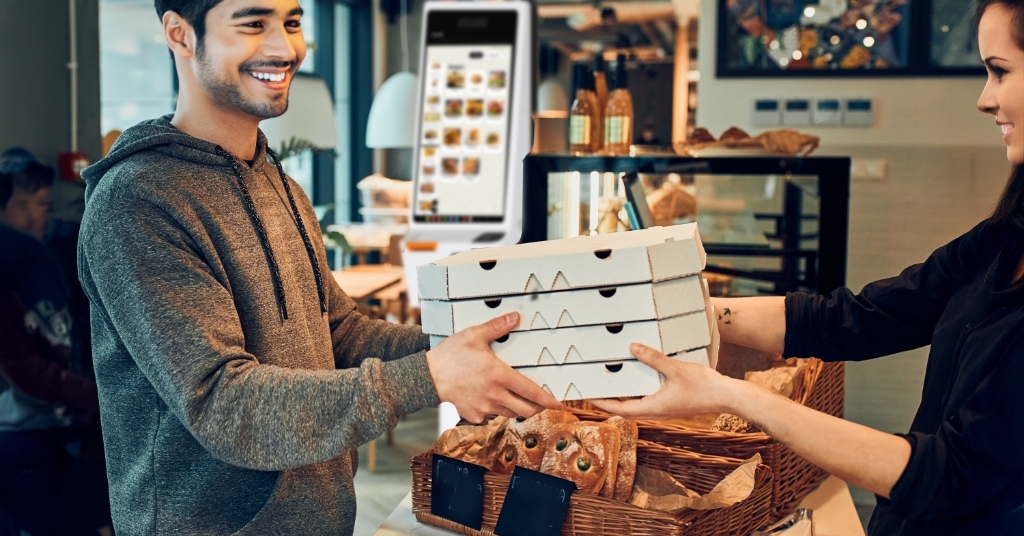How Digital Kiosks Can Improve Efficiency and Cut Costs


As small business owners and restaurant operators look to future-proof their operations in 2025, digital transformation is more than a buzzword—it’s a necessity. Whether you're managing a local cafe, a high-street takeaway, or a multi-location restaurant chain, one tool that's revolutionising the way businesses interact with customers is the digital kiosk.
These sleek, self-service units are no longer just for fast-food giants. Today, they’re more affordable, easier to integrate, and deliver measurable results—from speeding up service to trimming labour costs.
In this blog, we’ll explore how digital kiosks—especially those featuring digital kiosk displays and digital kiosk touch screens—are helping UK businesses streamline operations, cut overheads, and elevate the customer experience.
A digital kiosk is a self-service device with an interactive display that lets customers place orders, make payments, and even browse menus or product information. Most modern units use digital kiosk touch screens for ease of navigation, similar to smartphones or tablets.
They’re commonly seen in:
But now, they’re becoming more common in independent businesses looking to boost efficiency while keeping overheads low.
Digital adoption used to be intimidating, especially for small business owners. But in 2025, things have changed:
The UK’s small business scene is adapting fast, especially in food and beverage. A well-placed digital kiosk can now do the work of two to three employees at peak hours.
Time is money. When customers wait too long, they either walk away or leave a poor review. That’s where digital kiosk touch screens come into play.
With intuitive layouts, digital menus, and real-time order confirmation, kiosks can:
A recent study showed that UK restaurants using kiosks saw a 21% reduction in customer wait times within the first three months of implementation.

Hiring and retaining reliable staff continues to be a major issue in 2025. While a digital kiosk display won’t replace your team, it will help optimise how they’re deployed.
By offloading repetitive tasks like order-taking and payment processing to the kiosk, your staff can focus on:
This means you can operate more efficiently with fewer people per shift, especially useful during staff shortages or off-peak hours.
A well-configured digital kiosk touch screen doesn’t just take orders—it helps you increase them. With built-in upsell prompts and combo suggestions, you can boost average order values without pressuring customers.
Examples include:
Research shows customers are more likely to say “yes” to these digital nudges than to verbal up-sells from staff. One UK chain saw a 16% uplift in basket size within two months of adding upsell logic to their kiosk system.
Ever had a customer say, “That’s not what I ordered”?
Manual order-taking often leads to errors, especially in noisy environments or when there's a language barrier. A digital kiosk eliminates miscommunication by allowing customers to place their orders directly on the digital kiosk display.
Benefits include:
This not only reduces waste but also enhances customer satisfaction and loyalty.
Restaurants and shops in the UK often face space constraints. A digital kiosk touch screen unit can take up less room than a traditional service counter, giving you:
Many businesses install kiosks near the entrance to funnel foot traffic efficiently, especially for takeaway orders or click-and-collect services.
Modern kiosks do more than take orders—they capture valuable data. With built-in analytics, you can:
You can even connect the data with your online ordering system or mobile app to build a complete customer profile and personalise future experiences.
Not sure if a digital kiosk is the right fit for your business? Consider the following:
✔ High footfall during certain hours.
✔ Limited staff during peak times.
✔ Long queues or order errors.
✔ Desire to improve customer experience.
✔ Want to reduce operational costs.
If you tick two or more of these boxes, it's time to seriously consider implementing a digital kiosk display system.
Whether you run a coffee shop in Cardiff, a chicken takeaway kebab house in Manchester, or a retail shop in London, digital kiosks offer a powerful way to modernise, save money, and delight customers. In 2025, efficiency isn’t just about speed—it’s about smart, sustainable operations. And kiosks are a key piece of that puzzle.
Looking to improve order flow, reduce labour stress, and boost profits? Foodhub for Business offers affordable, easy-to-use digital kiosk touch screen solutions tailored for UK restaurants and takeaways.